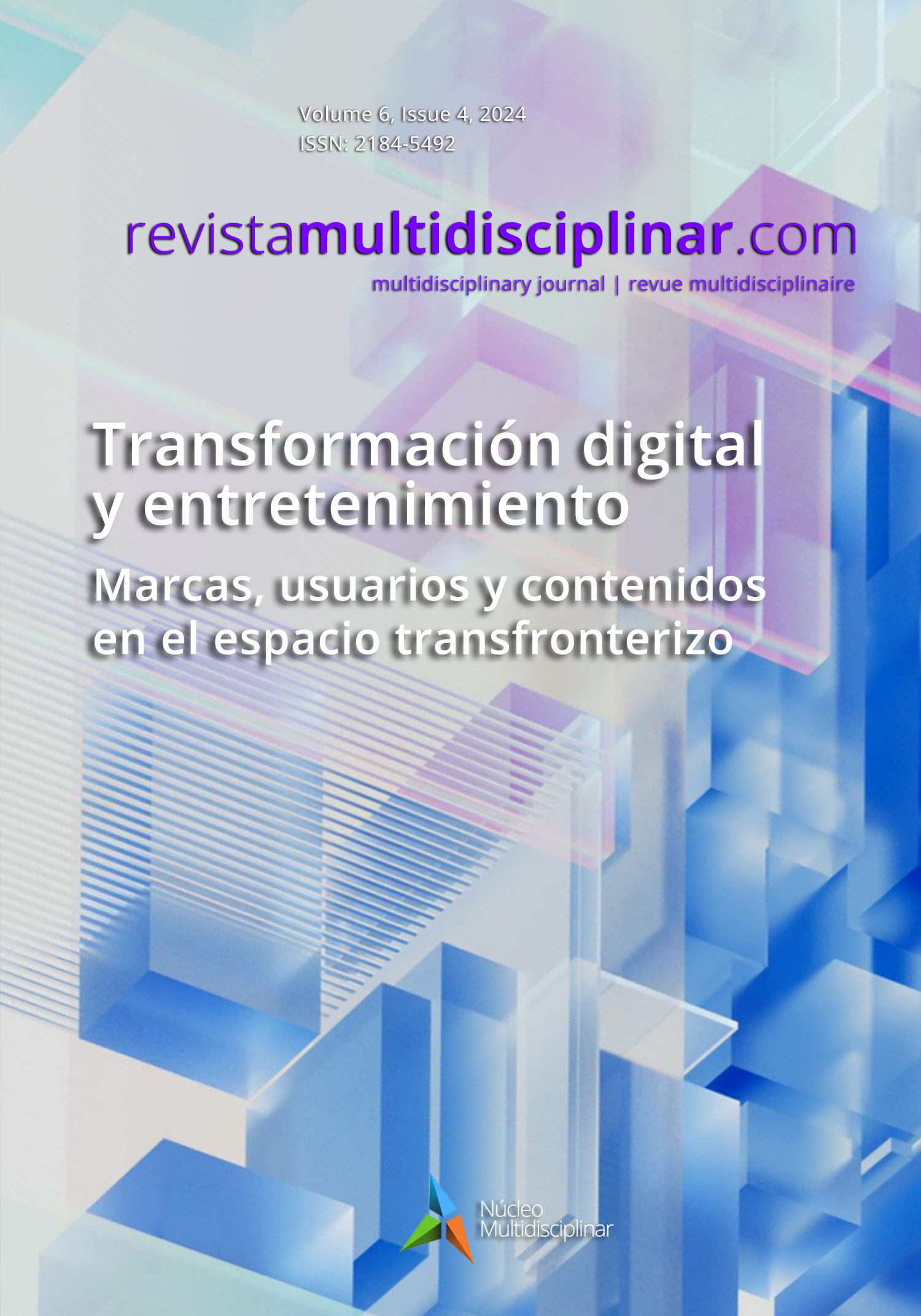Inteligencia artificial y medio ambiente
DOI:
https://doi.org/10.23882/cdig.24270Palavras-chave:
inteligencia artificial, ambiente, alterações climáticasResumo
O rápido crescimento e desenvolvimento da inteligência artificial (IA) na forma como as pessoas vivem, trabalham e interagem trouxe uma série de benefícios. Mas, ao mesmo tempo, também gera debates de uma perspetiva ética, social ou ambiental e em relação à sua evolução, expansão e adoção. A inteligência artificial (IA) é uma ferramenta poderosa que está a revolucionar muitos sectores, incluindo o ambiente. Através de algoritmos avançados e capacidades de aprendizagem automática, a IA oferece soluções inovadoras para enfrentar os desafios ambientais, desde a gestão dos recursos naturais até à atenuação das alterações climáticas. Iremos explorar a forma como a IA pode melhorar o ambiente em algumas das áreas de maior visibilidade: monitorização e conservação da biodiversidade, agricultura sustentável, gestão de resíduos, energias renováveis e análise de dados ambientais. Em suma, procurar e analisar soluções para ultrapassar os desafios do futuro que as alterações climáticas podem trazer. Soluções que envolvam governos, organizações não governamentais, comunidades locais, cientistas e o sector privado.
Referências
European Commission, Joint Research Centre, Manzoni, M., Medaglia, R., & Tangi, L. (2022). AI Watch, road to the adoption of artificial intelligence by the public sector: a handbook for policymakers, public administrations and relevant stakeholders. Publications Office of the European Union, 65-68. Disponible en [AI Watch, road to the adoption of artificial intelligence by the public sector - Publications Office of the EU] (https://publications.jrc.ec.europa.eu/repository/handle/JRC129100).
European Parliament, Directorate-General for Internal Policies of the Union, Herold, A., Gailhofer, P., & Urrutia, C. (2021). The role of artificial intelligence in the European Green Deal. European Parliament, 31. Disponible en [The role of artificial intelligence in the European Green Deal - Publications Office of the EU] (https://op.europa.eu/en/publication-detail/-/publication/5a1f76e8-7ef1-11eb-9ac9-01aa75ed71a1).
Galera Rodrigo, S. (2021). Cambio de modelo en la transición energética: ¿otro tren que pasará? Actualidad Jurídica Ambiental, (114), 3-4. Disponible en [Cambio de modelo en la transición energética: ¿otro tren quepasará?](https://www.actualidadjuridicaambiental.com/articulo-doctrinal-cambio-de-modelo-en-la-transicion-energetica-otro-tren-que-pasara/) (Fecha de último acceso 11/10/2022).
Goodfellow, I., Bengio, Y., & Courville, A. (2016). Deep learning. MIT Press. IA por el planeta: Destacando las innovaciones de la IA para UNESCO.
Johnson, R., & Johnson, E. (2021). AI and climate change: How they intersect and how to leverage both for the future. *Journal of Environmental Management, 287*, 112322. https://doi.org/10.1016/j.jenvman.2021.112322
LeCun, Y., Bengio, Y., & Hinton, G. (2015). Deep learning. *Nature, 521*(7553), 436-444.
Pardo-Burbano, M., Pinto-Rodríguez, V., & Muñoz-Ordóñez, J. (2021). EcologIA: Inteligencia Artificial para el cuidado del medio ambiente, prototipo de clasificación de residuos sólidos en punto de origen. *Investigación e Innovación en Ingenierías, 9*(3), 46-56. https://doi.org/10.17081/invinno.9.3.5312
Marcus, G., & Davis, E. (2019). Rebooting AI: Building artificial intelligence we can trust. Pantheon Books.
Regulation (EU) 2024/1689 of the European Parliament and of the Council of 13 June 2024 laying down harmonised rules on artificial intelligence and amending Regulations (EC) No 300/2008, (EU) No 167/2013, (EU) No 168/2013, (EU) 2018/858, (EU) 2018/1139 and (EU) 2019/2144 and Directives 2014/90/EU, (EU) 2016/797 and (EU) 2020/1828 (Artificial Intelligence Act) (Text with EEA relevance)
Rolnick, D., Donti, P. L., Kaack, L. H., Kochanski, K., Lacoste, A., Sankaran, K., ... & Bengio, Y. (2019). Tackling climate change with machine learning. *arXiv preprint arXiv:1906.05433*. https://doi.org/10.48550/arXiv.1906.05433
Smith, M. R., & Kelling, S. (2018). Artificial intelligence for environmental monitoring and management. *Frontiers in Ecology and the Environment, 16*(5), 261-269.
Vinuesa, R., Azizpour, H., Leite, I., Balaam, M., Dignum, V., Domisch, S., ... & Nerini, F. F. (2020). The role of artificial intelligence in achieving the Sustainable Development Goals. *Nature Communications, 11*(1), 1-10. https://doi.org/10.1038/s41467-019-14108-y
Wearn, O. R., Freeman, R., & Jacoby, D. M. P. (2019). Responsible AI for conservation. *Nature Machine Intelligence, 1*(2), 72-74. https://doi.org/10.1038/s42256-019-0022-7
Downloads
Publicado
Como Citar
Edição
Secção
Licença
Direitos de Autor (c) 2024 Celia García-Ceca

Este trabalho encontra-se publicado com a Creative Commons Atribuição-NãoComercial 4.0.









